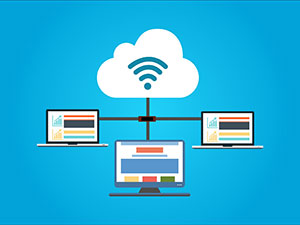 Individuals and businesses have relied on traditional methods like USB hard drives directly connected to computers or cumbersome file server setups for their storage solutions. However, the landscape is evolving, and Network Attached Storage (NAS) systems are emerging as a superior to these other file storage solutions. Here are some of the key advantages that NAS offers over its traditional counterparts.
Individuals and businesses have relied on traditional methods like USB hard drives directly connected to computers or cumbersome file server setups for their storage solutions. However, the landscape is evolving, and Network Attached Storage (NAS) systems are emerging as a superior to these other file storage solutions. Here are some of the key advantages that NAS offers over its traditional counterparts.
1. Centralized Storage and Accessibility
NAS systems serve as centralized repositories for data, accessible to multiple users across a network. Unlike USB hard drives tethered to individual machines or traditional file servers confined to specific locations, NAS provides ubiquitous access. Whether you're in the office, working remotely, or traveling, accessing your data becomes a seamless experience.
2. Scalability and Flexibility
One of the inherent limitations of USB hard drives is their finite capacity. As data accumulates, users often find themselves juggling multiple drives or upgrading to larger ones. Similarly, traditional file servers may require costly expansions or replacements to accommodate growing storage needs. NAS systems offer scalability without disruption. Users can easily add or swap out drives, expand storage capacity, or even integrate with cloud services for limitless scalability.
3. Enhanced Data Protection
Data loss can be catastrophic for individuals and businesses alike. USB hard drives are susceptible to physical damage, loss, or theft, putting data at risk. Traditional file servers, while offering some level of redundancy, may require complex backup strategies. NAS systems typically incorporate RAID configurations, mirroring, and snapshot features for robust data protection. Moreover, many NAS devices offer remote backup functionality, ensuring data integrity even in the face of unforeseen events.
4. Streamlined Collaboration
In today's interconnected world, collaboration is paramount. NAS facilitates seamless collaboration by allowing multiple users to access, share, and edit files simultaneously. Whether it's a team project, shared documents, or multimedia files, NAS eliminates the need for cumbersome file transfers or version control issues associated with traditional storage methods.
5. Cost Efficiency
While traditional file servers demand significant upfront investment in hardware, infrastructure, and maintenance, NAS systems offer a cost-effective alternative. The modular nature of NAS allows for gradual expansion according to needs, reducing upfront costs. Additionally, the centralized management and energy-efficient design of NAS contribute to lower operational expenses over time.
6.Versatility and Integration
NAS systems are not limited to mere storage repositories; they often boast a wide array of features and applications. From media streaming and surveillance footage storage to hosting websites and virtual machines, NAS can serve diverse purposes within both home and business environments. Furthermore, many NAS devices integrate seamlessly with existing IT ecosystems, supporting various protocols, operating systems, and third-party applications.
Embracing the Future with NAS
In a world where data is the lifeblood of productivity and innovation, embracing efficient storage solutions is paramount. While traditional methods like USB hard drives and file servers have served their purpose, NAS systems represent the next evolution in storage technology. With centralized accessibility, scalability, data protection, collaboration capabilities, cost efficiency, and versatility, NAS empowers individuals and businesses to harness the full potential of their data. Whether you're a small team or a multinational corporation, investing in NAS is a step towards a more connected, efficient, and secure future.
If your interested in learning how Natural Networks can help bring your business to the next level in your file storage system, give us a call today!



